Kashmiri Americans rally for IIOJK freedom from Indian occupation at UN
Protest takes place as Indian External Affairs Minister Jaishankar started addressing the UN General Assembly
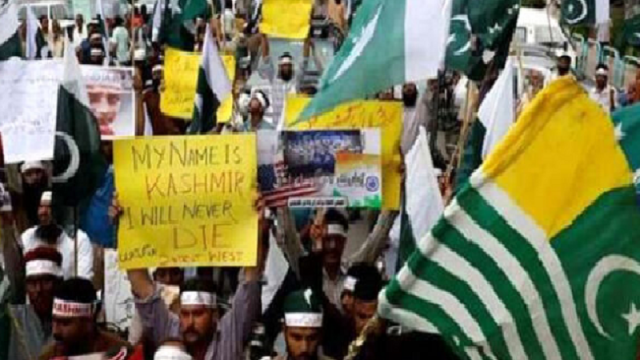
In a peaceful demonstration held in front of the United Nations (UN) amid heavy rain, Kashmiri Americans, along with supporters of the Kashmir cause, voiced their demand for freedom for Indian Illegally Occupied Jammu and Kashmir (IIOJK) from Indian occupation. This protest took place as Dr S Jaishankar, the Foreign Minister of India, was addressing the UN General Assembly.
Participants in the demonstration expressed their condemnation of the enactment of the Domicile Law and other illegal measures designed to alter the demographic makeup of Occupied Kashmir. They held placards with messages such as "Indian Forces: Out of Kashmir", "Who is the terrorist? Modi, Modi", "India: Honour UN Pledges", "Wake Up-Wake Up: UN Wake Up", "We Demand Justice for Yasin Malik", and "India: Release All Political Prisoners".
Dr Ghulam Nabi Mir, President of the World Kashmir Awareness Forum, emphasised the failure of the world to protect the basic rights of the 23 million Kashmiris over 76 years of illegal occupation. He questioned how long the United Nations General Assembly (UNGA) and the United Nations Security Council (UNSC) would allow India to escape accountability for daily atrocities in Kashmir.
He characterised the current Indian government as a "fascist Hindu nationalist regime" actively erasing the unique blend of Kashmiri cultural values and rich traditions. According to Dr Mir, this regime aggressively seeks to replace them with a violent, intolerant Hindutva society grounded in a Brahmin caste system. The Kashmiri diaspora, he stated, stands united in demanding that India dismantle illegal settlements in the occupied Kashmir, withdraw its 900,000 occupation forces, and allow Kashmir to build its own nation based on tolerant, democratic, and pluralistic Muslim ideals.
Barrister Sultan Mehmood Chaudhary, President of Azad Kashmir, addressed the gathering via Zoom, stressing the grave situation in Occupied Kashmir and the need to bring it to the attention of the UN Security Council. He warned that the failure to resolve the Kashmir issue could lead to serious disturbances throughout South Asia, possibly resulting in another war between India and Pakistan.
Dr Ghulam Nabi Fai, Chairman of the 'World Forum for Peace & Justice,' appealed to the world body to establish and adhere to a basic set of principles regarding human rights, the interests of Kashmiris, and the preservation of vital interests for both India and Pakistan. He emphasised that the response of world powers, including the United States, must be based on the principles of the right of a people with a distinct historical and cultural identity to determine their own future, the sanctity of international agreements worked out by the United Nations, and the consistent application of human rights standards.
Dr Pir Ali Raza Bukhari, a parliamentarian from Azad Kashmir, issued a stark warning about the situation in Indian-occupied Kashmir. He highlighted India's deployment of over 900,000 fully armed soldiers with extensive powers under draconian Kashmir-specific laws. Furthermore, he emphasised the unjust incarceration of leaders of the Kashmiri political resistance movement and human rights activists on frivolous charges, all while enduring subhuman conditions. Dr Bukhari asserted that the ultimate goal of these actions was to alter the demographic composition of Indian-occupied Kashmir, potentially to gain a favourable outcome in the event of a future plebiscite.
Sardar Sawar Khan, former Advisor to the Prime Minister of Azad Kashmir, expressed his strong disapproval of the situation in Kashmir, emphasising that it is unacceptable. He went on to describe Kashmir as the most dangerous nuclear hotspot globally. He also pointed out that Indian laws do not apply to Kashmir, highlighting its status as an internationally recognised disputed territory and not an integral part of any UN member state.
Dr Amerjit Singh, President, Khalistan Affairs Center accused India's Modi-led government of committing crimes against humanity, both within India and beyond its borders. He cited the case of the extrajudicial murder of the Sikh Canadian leader, Hardeep Singh Nijjar, which gained international attention when Canadian Prime Minister Justin Trudeau addressed it on September 18, 2023, in the Canadian Parliament.
Read also: Mallick lauds PM for raising voice for oppressed Kashmiris at UNGA
Sardar Zarif Khan, Advisor to the President of Azad Kashmir, described the current state of Kashmir as the most dangerous place on Earth. He called for the immediate repeal of draconian laws that provide Indian forces with total immunity, citing the imperative of safeguarding international peace and security.
Sardar Zubair Khan highlighted that the people of Jammu and Kashmir have been demanding the right of self-determination for more than seven decades. He noted that India responds to these demands with the use of force, including bullets and pellet guns, in an attempt to suppress the peaceful movement for liberation.
Sardar Zulfiqar Roshan Khan talked about the abrogation of Article 370 and 35A, emphasising that these actions were designed to crush the freedom movement in Kashmir. He stressed that despite these actions, the international community cannot deny the fact that the Kashmir issue holds international significance.
Sardar Aftab Khan called for a constructive departure from the current situation in Kashmir. He suggested that the focus should return to the rights and interests of the people of Kashmir, which is where the issue logically belongs.
Expressing frustration, Sardar Haleem Khan, President JKLF, North America argued that India cannot simply ignore the ongoing situation in Kashmir. He urged world powers to engage with the people of Kashmir to understand their aspirations and desires.
He expressed his frustration with India's handling of the situation in Kashmir and emphasised that the truth of the matter is painfully obvious. He called on world powers to engage with the people of Kashmir and ascertain their genuine desires and aspirations.
Sardar Taj Khan, Vice Chairman, Kashmir Mission, US appealed to the conscience of the Biden Administration, acknowledging the importance of trade and commercial deals. However, he stressed that such agreements should not come at the expense of upholding high moral standards and addressing the grievances of the people of Kashmir.
Maqsood Chughtai expressed serious concern over the silence of world powers regarding the situation in Kashmir. He pointed out that Genocide Watch has testified before the US Congress, warning of the potential for genocide in both India and Kashmir.
Advocate Imtiaz Khan Garalvi emphasised the need to fulfil the right of self-determination that was promised to the people of Kashmir. He reiterated that the Kashmir dispute cannot be resolved through military means and called for peaceful negotiations involving all concerned parties.
Read: Saudi FM warns of regional instability if Kashmir issue unresolved
Madina Amber highlighted that international attention is now focused on Kashmir and called for unity among people in their pursuit of freedom from what she described as the oppressive Indian regime. She emphasised that world powers have a moral duty to intervene to bring justice and peace to the people of Kashmir, who she believes are facing systematic brutality under the Indian government.
Raja Razzak issued a warning, stating that the nation of Kashmir is facing an existential threat from the aggressive Hindu Nationalist regime, which he likened to Hitler and Mussolini's Nazi ideology. This comparison underscores the seriousness of the situation.
Aftab Shah demanded the implementation of the United Nations resolution on Kashmir, which would allow the people of Kashmir to exercise their right to self-determination. This reflects a call for the international community to uphold the UN's resolutions on the matter.
Choudhary M Ishaq stated that the entire nation of Azad Kashmir stands in solidarity with the oppressed people of Jammu and Kashmir. He pledged to continue exposing the alleged atrocities and brutalities committed by the Indian Prime Minister, Narendra Modi, whom he referred to as a fascist leader.
Raja Mukhtar of JKLF accused the Modi government of committing genocide against Kashmiris and criticised the Indian army for allegedly fabricating stories of oppression and barbarism. He expressed frustration at the perceived lack of condemnation from the civilised world, suggesting that more attention and action are needed to address the situation.
Khawaja Farooq described ongoing atrocities against the peace-loving people of Kashmir, including gang rapes, mass graves, and children blinded by pellet gun wounds. He expressed dismay at the silence of world powers, indicating that their inaction is difficult to comprehend in the face of such alleged human rights abuses.
Sardar Sajid Sawar accused Modi of terrorising neighbouring countries and subjugating the people of Kashmir. This statement reflects concerns about India's actions and their impact on the region.
Sufi Nazir called on people worldwide to stand up and speak up for the freedom of Kashmir. This statement is an appeal for international solidarity and support for the cause of Kashmiri self-determination.
In a memorandum submitted to UN Secretary-General Antonio Guterres, signed by the Kashmiri diaspora leadership, the denial of the right to self-determination to the people of Jammu and Kashmir was declared a grave threat to international peace and security. The memorandum underscored the urgent need for resolution, highlighting the potential nuclear catastrophe looming over India and Pakistan due to the unresolved Kashmir dispute.

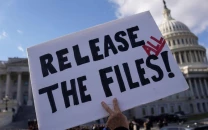
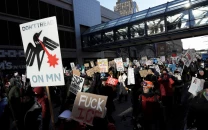
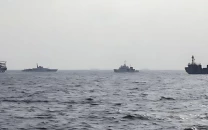
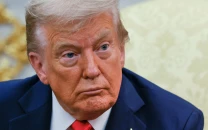
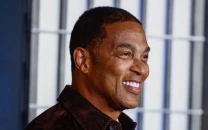
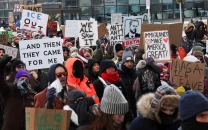












COMMENTS
Comments are moderated and generally will be posted if they are on-topic and not abusive.
For more information, please see our Comments FAQ